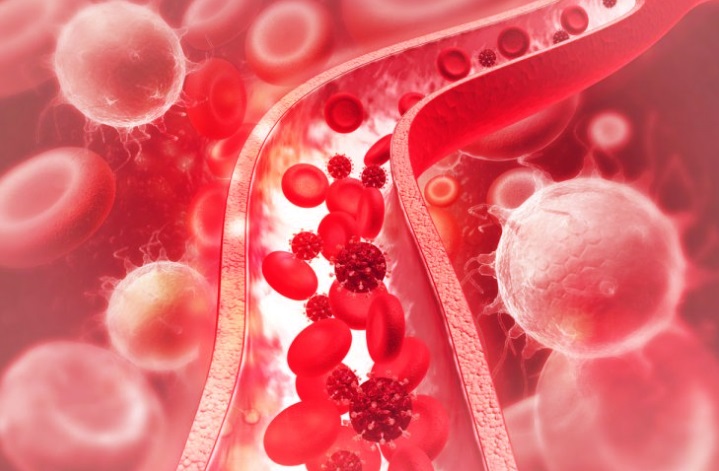Nikhil Prasad Fact checked by:Thailand Medical News Team Jul 29, 2025 6 months, 5 days, 19 hours, 20 minutes ago
Medical News: New Study Uncovers Alarming Sex Differences in Long COVID Effects on Blood Vessels
A new study has revealed that women suffering from long COVID are significantly more likely than men to experience inflammation, damage to the gut barrier, and stiffening of the arteries—an important risk factor for future heart disease. The research was conducted by scientists from Case Western Reserve University School of Medicine, University Hospitals Cleveland Medical Center, Saint Joseph University in Beirut, and Kent State University.
 Women with Long COVID at Higher Risk of Artery Damage
Women with Long COVID at Higher Risk of Artery Damage
Researchers matched 89 individuals who had recovered from COVID-19 with 89 individuals who had never contracted the virus. They examined a wide range of health markers including inflammatory molecules in the blood, indicators of gut integrity, and measures of arterial stiffness. This
Medical News report highlights that among those who had recovered from COVID-19, 64% developed long COVID symptoms lasting more than three months, including fatigue, brain fog, and palpitations.
What the Study Found
The most striking discovery was that women with long COVID had the highest levels of inflammation and gut leakiness. These women were also far more likely to show signs of poor arterial elasticity, measured using a marker called the augmentation index (AIx). A higher AIx indicates stiffer arteries, which are linked to a higher risk of cardiovascular disease.
Specifically, female long COVID patients had up to a fivefold increased risk of worse arterial function compared to men without long COVID. Even after adjusting for age, BMI, smoking, and other risk factors, markers like IL-6, hsCRP (a type of C-reactive protein), zonulin (linked to gut permeability), and β-D-glucan (a fungal marker) remained strongly associated with artery damage in these women.
The researchers also found that elevated levels of oxidized LDL cholesterol, tumor necrosis factor receptors, and intestinal fatty acid binding protein further worsened vascular health in long COVID patients—especially women. These markers suggest persistent inflammation and microbial leakage from the gut into the bloodstream, potentially fueling ongoing vascular injury.
Why Women Are More Vulnerable
While men typically experienced more severe outcomes during acute COVID-19 infections, women—especially those aged 40 to 54—are more prone to develop long COVID. The researchers suggest that this could be due to differences in immune response, hormones, and gut microbiome composition between the sexes. Female patients often mount a stronger immune reaction, which, if unresolved, can evolve into chronic inflammation and longer-lasting symptoms.
Why This Matters
These findings emphasize the importance of long-term monitoring for women who develop long COVID. Regular assessments of vascular health, inflammation, and gut barrier integrity could help detect early signs of cardiovascular issues and guide treatm
ent. The study also reinforces the need for gender-specific research and interventions in the management of long COVID.
In conclusion, the study shows that women with long COVID are at significantly higher risk of arterial damage and persistent inflammation, which could have long-term consequences for heart health and overall well-being. Timely screening and targeted care could help prevent severe outcomes in this vulnerable group.
The study findings were published in the peer reviewed journal: Scientific Reports
https://link.springer.com/article/10.1038/s41598-025-11470-4
For the latest COVID-19 News, keep on logging to Thailand
Medical News.
Read Also:
https://www.thailandmedical.news/news/sars-cov-2-spike-protein-causes-dangerous-remodeling-of-lung-blood-vessels-in-the-dead-and-likely-in-the-living-as-well
https://www.thailandmedical.news/news/two-years-after-infection-covid-19-found-to-have-restructured-the-brain-making-it-dysfunctional
https://www.thailandmedical.news/news/canadian-study-finds-brain-structural-changes-in-long-covid-patients-that-are-possibly-induced-by-edema-or-gliosis
